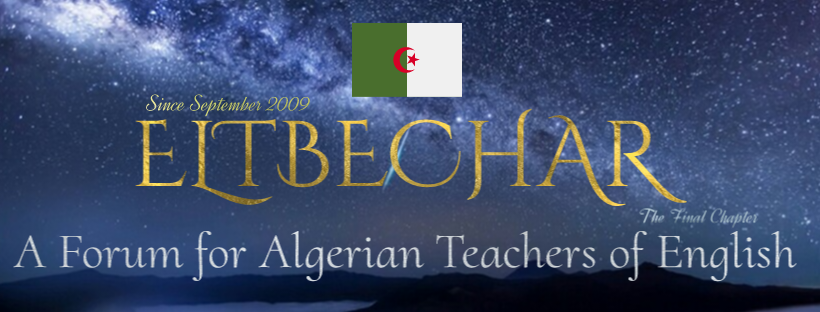Log in
Search
Latest topics
Who is online?
In total there are 75 users online :: 0 Registered, 0 Hidden and 75 Guests :: 1 BotNone
Most users ever online was 134 on Mon Sep 23, 2024 11:22 am
Most Viewed Topics
Fun ways of practising Reported Speech
Page 1 of 1
 Fun ways of practising Reported Speech
Fun ways of practising Reported Speech
Fun ways of practising Reported Speech
1. Reported speech reversi
Prepare cards with reported speech on one side and direct speech of the same sentence on the other. Students have to correctly say what is on the other side to turn it over and score one point. There are many games you can play with these cards, including the TEFL version of Reversi/ Othello that was first described by Mario Rinvolucri in Grammar Games and that is the subject of an upcoming article of mine.
2. Go betweens
This is also a game from a classic TEFL supplementary book that can easily be done without access to the book (in this case Intermediate Communication Games). Two students have such a problem with each other that they are refusing to speak, and another student shuttles between them trying to find a compromise. The two students need to be sitting so far apart that they can’t hear the other people speak and so really need to listen to the peacemaker, e.g. by sitting in different rooms or one half of the students sitting in the corridor. Making both sides have complaints about the other and giving out roleplay cards can also help set up this activity well, as can having different groups of students working on different situations so that they can’t listen into the neighbouring teams. Possible situations to roleplay include students who have problems with the other students’ behaviour in class (speaking too much, not speaking enough, holding up the lesson because they haven’t done their homework, distracting the teacher from the lesson plan by asking questions, etc- maybe leading onto discussion of good classroom behaviour), neighbours, neighbouring countries, married couples, or suppliers and customers who are near breaking point in their relationship. This can also be used for non-conflict negotiations such as premarital contracts or price negotiations. Note that students usually get into this activity so much that they completely forget about Reported Speech, so you might want to do this as a controlled activity where they must make an effort to use the structures you have presented.
3. What they told you
Give the students a list of people they have probably been spoken to by in their lives (e.g. teachers, policemen, future employers, immigration officers and market researchers) or brainstorm such a list onto the board. Students choose one of the people on the list and say things that this person really said to them, e.g. “He asked me whether I wanted a single or return”, and the other students guess which person from the list was speaking. As a more challenging extension, they can continue the game with people not on the list. This can also be done as Twenty Questions, e.g. “Has this person ever asked you whether you were carrying any drugs?” This game links well with the vocabulary of jobs or practising situational language such as “At the airport”. The same game can also be done with the vocabulary of relationships like “colleague”, “acquaintance” and “classmate”.
4. Reported speech pairwork dictation
This idea lacks the fun element of the other games here (unless you choose or write an amusing dialogue or one with a surprising twist), but is easy to do and check and can lead to examination of things we usually leave out of reported speech such as “well” and “yes”. It can also be a lead in to the similar but more fun activities below. Student A has one person’s part of a dialogue and Student B has the other person’s part, and they convert their part into reported speech and tell their partner what the person on their worksheet said so that their partner can convert it back into direct speech (in their heads) and write it down in the gaps on their sheet. At the end when they check their worksheets with each other they should have identical dialogues written down. This activity can be made more challenging by one of the students having their half of the dialogue in mixed up order.
5. Reported speech pairwork dictation same or different
A more intellectually challenging version of pairwork dictation is giving students similar but not identical direct speech sentences on Student A and Student B sheets. They dictate them to each other in reported speech and work together to decide if the original two sentences were the same or not, e.g. Student A reports “Do you feel happy?” as “He asked me whether I felt happy” and Student B reports “Are you feeling happy?” as “He asked me if I was feeling happy”, and they decide together that the original sentences were different (without ever telling their partner exactly what is on their sheet). You can add some trick questions where the direct speech sentences are different but the reported speech versions are the same, e.g. “I have been there” and “I was there” or “I was there that day” and “I have been there today”. They might feel robbed if you include sentences like this as it will stop them finishing the game successfully, but they will really pay attention when you bring that grammar point up later!
6. Pairwork dictation match the sentences
Another good way of using sentences that sound similar when converted into reported speech (either correctly or wrongly) is to put the same direct speech sentences on Student A’s and Student B’s worksheets but mixed up and labelled 1 to 10 (for example) on one student’s and a to j on the other. They then dictate them to each other in reported speech and decide which ones are the same.
7. Pairwork dictation match the dialogue pairs
Rather than matching identical sentences as above, you can add extra language and challenge by the students trying to match up typical functional language sentence pairs such as “Would you like anything else?” on Student A’s sheet and “No, that’s all thanks” on Student B’s. The sentences on their worksheets can be given in reported speech for them just to read out and convert back to direct speech in their heads while trying to work out which typical sentences or (more challenging) be given as direct speech for them to convert to reported speech when they tell them to their partner as in the games above.
8. Reported Speech sentence completion guessing game
Give the students a list of sentence stems that should be completed with reported speech such as “I forgot to tell someone…”, “ or “Someone told me that I…”. They complete as many sentences as they can and then read out only the part they have written for the other students to guess which sentence that comes from.
9. Guess the backshift
Students tell their partner(s) something that was said to them in direct speech (maybe using the air speech marks gesture), and their partner(s) convert it into reported speech, using the right kind of backshift or not by guessing whether it is something that is generally true about them, whether it is something their brother always says to them or whether it was a one off thing that is no longer true, e.g. choosing to convert “My brother said ‘You look sad’” to “Your brother said that you looked sad” or “Your brother (often) says that you look sad/ your brother once said that you always look sad” depending on whether they think that is generally true or not.
10. The … thing he ever said
Give prompts containing superlatives for real things people said to them, e.g. “The worst thing your siblings have said to you” or “The best advice you have ever had”. Students tell their partner(s) one of these things, and their partners guess which prompt it refers to.
11. Referring to who guessing game
Students report something they said or heard about someone else, e.g. gossip about someone famous, news about a politician, a reviewer’s opinion on someone’s acting or a colleague slagging off their boss, and the other students guess who was being spoken about.
12. Which occasion
Students tell their partners something that was said to them at an important time, e.g. when they graduated from university or the first time their parents talked to them about sex, and their partners guess which occasion that thing was said at. The list of occasions can be given as a worksheet or brainstormed onto the board. This topic can easily be extended into an interesting cross cultural discussion on the traditional lack of school graduation ceremonies in the UK etc.
13. And this is how I felt sentence completion
Students report something that was said to them or they heard that they had a strong emotional reaction to and the other students guess what their reaction was. This ties in well with a lesson on adjectives, and you can maybe give them a worksheet with some suggested adjectives on or brainstorm them before the activity, such as “… and I felt sad/ hungry/ romantic/ nostalgic/ old/ young/ flattered”
14. Reported mingling
Almost any mingling activity (e.g. Find Someone Who) can be extended to include reported speech by people reporting back to their partners or the class what they learnt. Before doing this you will need to decide whether you want to encourage them to use Reported Speech or whether it is something you hope will come up naturally and that you might bring up later in an error correction stage.
15. Real or imagined reported speech
This one works well with students whose memories freeze under the stress of speaking English or who don’t want to give away too much personal information. Students report something from prompts such as those described above, and then the other students guess whether that was really said to them or whether it was just made up.
Guest- Guest
 Re: Fun ways of practising Reported Speech
Re: Fun ways of practising Reported Speech
Helpful post, a myriad thanks
When you come to the end of your rope, tie a knot and hang on. ~Franklin D. Roosevelt
When you come to the end of your rope, tie a knot and hang on. ~Franklin D. Roosevelt

BILLAL- Admin

- Posts : 258
Join date : 2009-09-07
Age : 42
Location : Beni ounif
Page 1 of 1
Permissions in this forum:
You cannot reply to topics in this forum


» Hello Everyone .
» First Test - year 1 Lit
» ELT- trainee teachers' manual
» urgent :I need an answer (narrative or exposirory)
» Action verbs for writing aims and objectives
» YEAR THREE (MOCK BAC ) EXAMS
» 3rd year teaching cards (all units)
» Diagnostic tests - 2017/2018